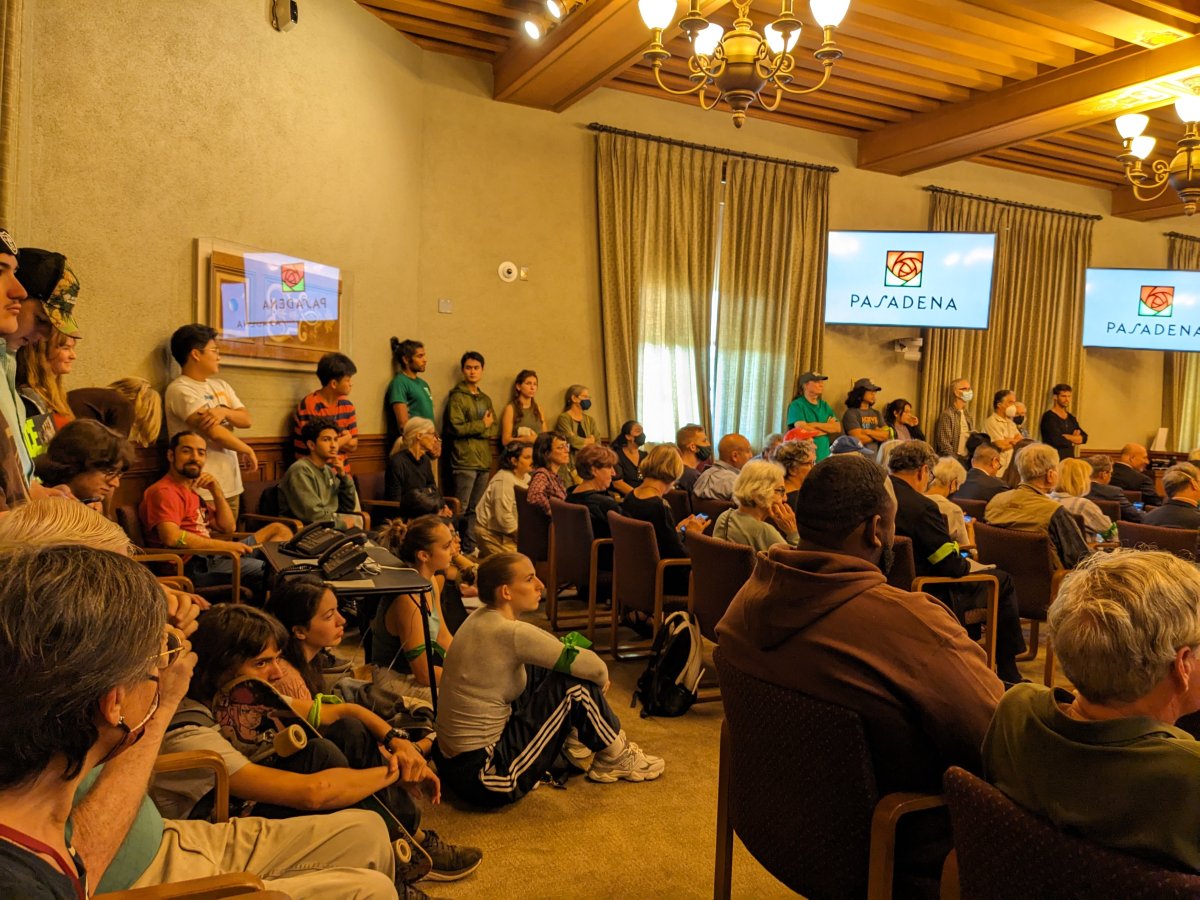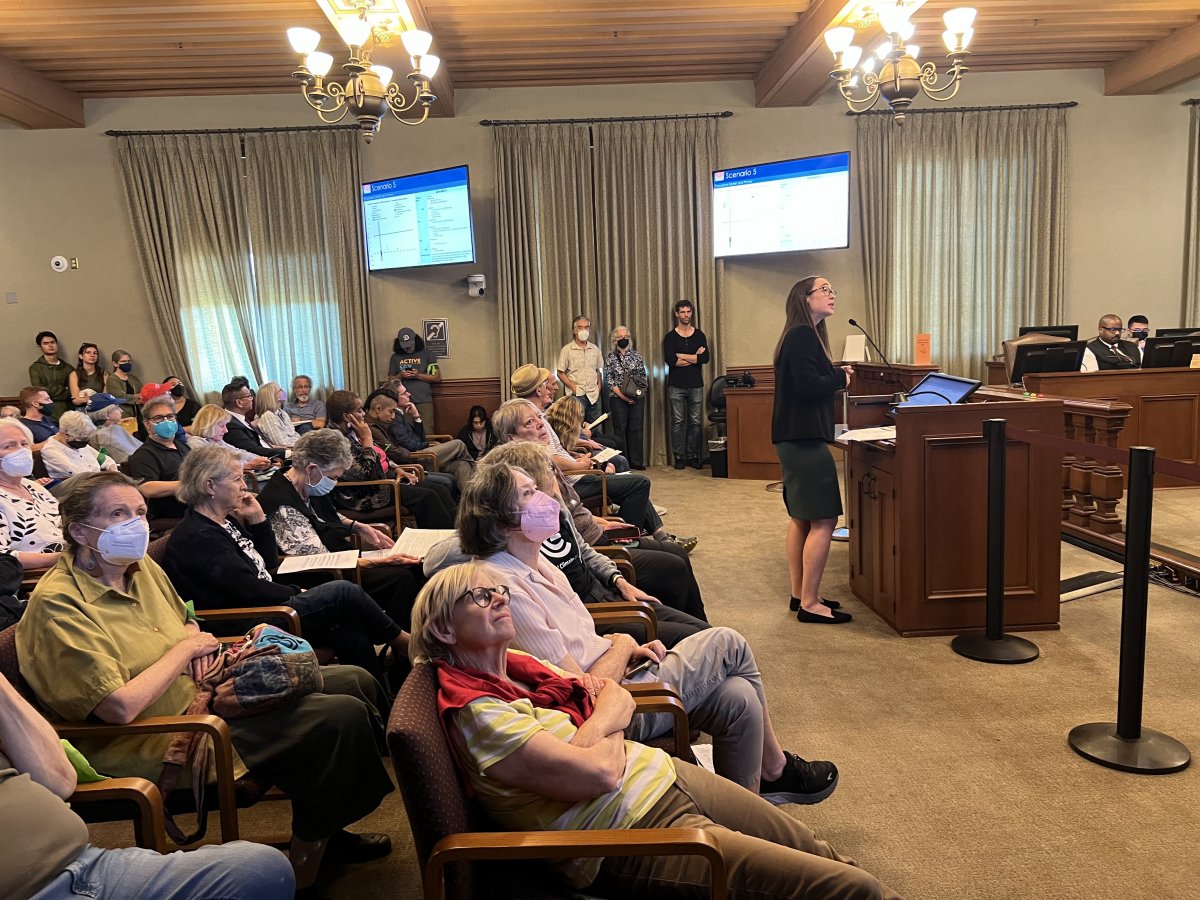November 1, 2023
Who wins, the planet or the electric utility?
You have electrified your home, and installed solar panels. You drive an electric car and you no longer take commercial airplane flights. You know that all this is just a drop in a very big ocean. What do you do next to save the planet?
A coalition of 23 community groups in Pasadena have come up with a solution. They came together in May of 2022 and formed a grassroots organization (the Pasadena 100) to force Pasadena to commit to 100% fossil fuel free electricity by 2030. They reasoned that Pasadena, the home to Cal Tech and the Jet Propulsion Laboratory, had the talent to achieve this stretch goal, and if it was successful, it would serve as an example for cities throughout California to emulate. They tabled extensively, went door to door, and collected over 1300 postcards from the Pasadena utility’s customers calling for clean power by 2030. They had children deliver those postcards to Pasadena city councilmembers. They held public events and in January 2023 the Pasadena city council unanimously passed a resolution requiring fossil fuel free electricity by 2030. They thought their job was done.
The leader and founder of the Pasadena 100, Cynthia Cannady, is an intellectual property attorney with a law degree from Harvard and and an undergraduate degree from Stanford. Her clients have included the United Nations. She served as a trustee of Stanford University and founded IPSEVA, a professional organization focused on intellectual property for sustainable energy ventures. She is tenacious and tireless, and among many other activities, leading a Zoom call once a week for the Pasadena 100 team, insuring the calls are productive and that every team member has an opportunity to be heard.
But the team did not anticipate the tenacity of entrenched interests. The utility, charged with creating a plan to power the utility over the next 20 years, knew coal and gas but not solar and wind. They hired a consultant with no renewables experience to help them make the plan. They formed a citizens’ advisory committee to advise them then decided a few days before its first meeting that it wasn’t sufficiently “diverse”, i.e. didn’t contain enough business interests. They expelled several environmental advocates and replaced them with business people, who seldom showed up to the meetings. They carefully controlled the meetings to suppress public input. Then in early October in a 2 hour presentation to a committee of the city council they gave all of the reasons why the fossil fuel free power goal was “logistically infeasible”. They requested the committee approve a plan that did not include Pasadena 100’s goal.


Pasadena 100, anticipating this result, stuffed the audience with 120 of its green armband wearing supporters. Over 20 of them spoke demanding that the city comply with the fossil free electricity goal. The city council committee voted not to approve the utility’s plan, instead directing them to come back with a detailed plan to overcome the hurdles to carbon free electricity by 2030.
On October 23rd, Pasadena 100 had 7 scientists address the city council regarding climate change to reinforce the emergency of the climate crisis.
The utility’s revised plan must be again presented to the city council committee, then to the full city council, then to the California Energy Commission, all before the end of the year. Stay tuned for the outcome of this contest. Pasadena 100 will not give up its carbon free goal without a colossal fight.
If you want to support Pasadena 100, or just want to get regular updates, you can sign up here.
